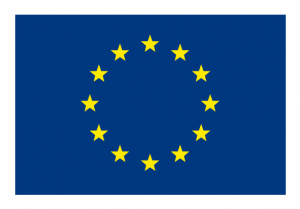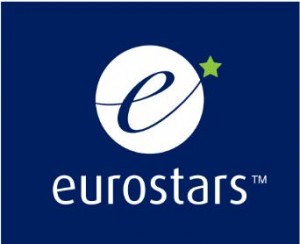
The following funding opportunities have been announced. Please follow the links for more information.
British Council
The British Council have announced the opening of a number of Newton funded grants.
The Newton Institutional Links grant aims to build innovative collaborations directly relevant to social welfare and economic development between the UK and any of the following countries: Brazil, Egypt, Indonesia, Kazakhstan, Philippines, Thailand and Mexico. Grants are available for amounts between £50k-£300k. Closing Date 27/6/16 at 16:00
The Newton Researcher Links Travel Grants has made available funds for international research placements (for 1-6 months, dependent on the country) for researchers that reside in the UK with partners in Colombia, Egypt, Indonesia and Turkey or those from the partner countries to visit the UK. guidance may be found here. Closing Date 27/6/16 at 16:00
The Newton Workshop Grants fund aims to bring early-career researchers together with a partner country (Brazil, Egypt, India, Turkey, South Africa and Vietnam. Mexico may also be added to this fund in the future.) to address problems of low-income and vulnerable populations. The level of the grant funding available depends on the specific partner country. More guidance may be found here. Closing Date 27/6/16 at 16:00
Economic and Social Research Council
The ESRC, together with DFID, welcome applications to the Raising Learning Outcomes in Education Systems Research Programme. The topic for 2016 relates to ‘how do accountability relationships and processes within developing country education systems enable or inhibit the raising of learning outcomes?’ A total of £6.5M will be made available with projects expected to be between £200k-£700k. Closing Date 26/7/16 at 16:00
European Commission
The Directorate-General for Mobility and Transport have announced a tender opportunity to apply for a “Study on the implementation of Directive 2006/126/EC of the European Parliament and of the Council of 20.12.2006 on driving licences“. Applications are welcome for amounts up to €200k to provide analysis for the project which can last a maximum 12 months. Closing Date 7/6/16
The Directorate-General for Employment, Social Affairs and Inclusion has opened a call for proposals which offer “Support for Social Dialogue“. A total fund of €9.3M is available with expected grants to be between €150k-€500k. Closing Date 30/6/16
The European Food Safety Authority (EFSA) welcomes applications for the provision of services in relation to research on “Italy-Parma: Wildlife: collecting and sharing data on wildlife populations, transmitting animal disease agents“. The maximum amount to be tendered for is €3m for a study lasting no more than 72 months. Closing Date 13/6/16
As part of H2020, 27 calls related to Bio-Based Industries (H2020-BBI-JTI-2016) have opened. An overall budget of €188.6M will be available with a minimum amount of €110M to be awarded. Closing Date 8/9/16
Wellcome Trust
Applications are invited for an Early Career Fellowships who wish undertake research in a laboratory in India. Fellowships are for up to five years and will cover personal support for the fellow, research and travel expenses. Closing Date 6/6/16
The Seed Awards in Science scheme provides one-off grants of up to £100k for projects lasting up to two years. Funds cannot be used to pay for personal salary costs but are intended to pay for research and travel costs. Closing Date 20/6/16
The Collaborative Awards in Humanities and Social Science invites applications for projects proposing to conduct research into major health-related questions in the humanities and social sciences. Awards cannot exceed £2M but are expected to be in the range of £1M to £1.5M. Preliminary Application Closing Date 8/7/16
The Collaborative Awards in Science makes available an award of up to £4M over five years for interdisciplinary research collaborations of scientists and/or clinicians (medical and veterinary) and/or non-biologists (e.g. mathematicians, physicists, chemists, engineers and social scientists). Preliminary Application Closing Date 22/8/16
If you are interested in submitting to any of the above calls you must contact RKEO with adequate notice before the deadline.
Please note that some funding bodies specify a time for submission as well as a date. Please confirm this with your RKEO Funding Development Officer.
You can set up your own personalised alerts on Research Professional. If you need help setting these up, just ask your School’s/Faculty’s Funding Development Officer in RKEO or view the recent blog post here.
If thinking of applying, why not add notification of your interest on Research Professional’s record of the bid so that BU colleagues can see your intention to bid and contact you to collaborate.
 If you are thinking of applying for EU funding in the coming year, you need to be at this event!
If you are thinking of applying for EU funding in the coming year, you need to be at this event!



 Secure, clean and efficient energy, (Horizon 2020, Societal Challenge 3) has a number of opportunities relevant to BU in 16/17. With specific calls ranging from consumer behaviour to energy efficiency and renewables, there really is something for everyone in Societal Challenge 3.
Secure, clean and efficient energy, (Horizon 2020, Societal Challenge 3) has a number of opportunities relevant to BU in 16/17. With specific calls ranging from consumer behaviour to energy efficiency and renewables, there really is something for everyone in Societal Challenge 3.
 Societal Challenges, by their nature, require input from across the disciplines. Please read on, even if you
Societal Challenges, by their nature, require input from across the disciplines. Please read on, even if you  Horizon Prize – Birth Day
Horizon Prize – Birth Day Eurostars supports international innovative projects led by research and development- performing small- and medium-sized enterprises (R&D-performing SMEs). With its bottom-up approach, Eurostars supports the development of rapidly marketable innovative products, processes and services that help improve the daily lives of people around the world. Eurostars has been carefully developed to meet the specific needs of SMEs. It is an ideal first step in international cooperation, enabling small businesses to combine and share expertise and benefit from working beyond national borders.
Eurostars supports international innovative projects led by research and development- performing small- and medium-sized enterprises (R&D-performing SMEs). With its bottom-up approach, Eurostars supports the development of rapidly marketable innovative products, processes and services that help improve the daily lives of people around the world. Eurostars has been carefully developed to meet the specific needs of SMEs. It is an ideal first step in international cooperation, enabling small businesses to combine and share expertise and benefit from working beyond national borders.





 number of information and networking events relating to ICT in the Horizon 2020 Work Programme 2016-2017 are taking place in Brussels over the coming weeks. Go to The
number of information and networking events relating to ICT in the Horizon 2020 Work Programme 2016-2017 are taking place in Brussels over the coming weeks. Go to The 










 SPROUT: From Sustainable Research to Sustainable Research Lives
SPROUT: From Sustainable Research to Sustainable Research Lives BRIAN upgrade and new look
BRIAN upgrade and new look Seeing the fruits of your labour in Bangladesh
Seeing the fruits of your labour in Bangladesh Exploring Embodied Research: Body Map Storytelling Workshop & Research Seminar
Exploring Embodied Research: Body Map Storytelling Workshop & Research Seminar Marking a Milestone: The Swash Channel Wreck Book Launch
Marking a Milestone: The Swash Channel Wreck Book Launch ECR Funding Open Call: Research Culture & Community Grant – Application Deadline Friday 12 December
ECR Funding Open Call: Research Culture & Community Grant – Application Deadline Friday 12 December MSCA Postdoctoral Fellowships 2025 Call
MSCA Postdoctoral Fellowships 2025 Call ERC Advanced Grant 2025 Webinar
ERC Advanced Grant 2025 Webinar Update on UKRO services
Update on UKRO services European research project exploring use of ‘virtual twins’ to better manage metabolic associated fatty liver disease
European research project exploring use of ‘virtual twins’ to better manage metabolic associated fatty liver disease